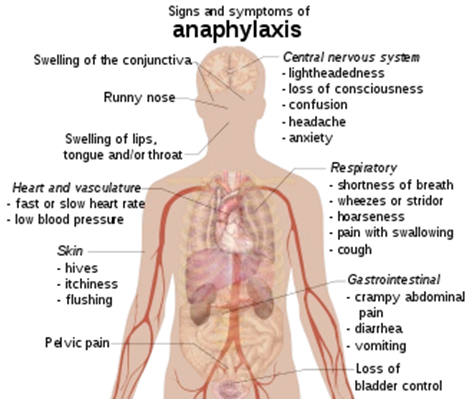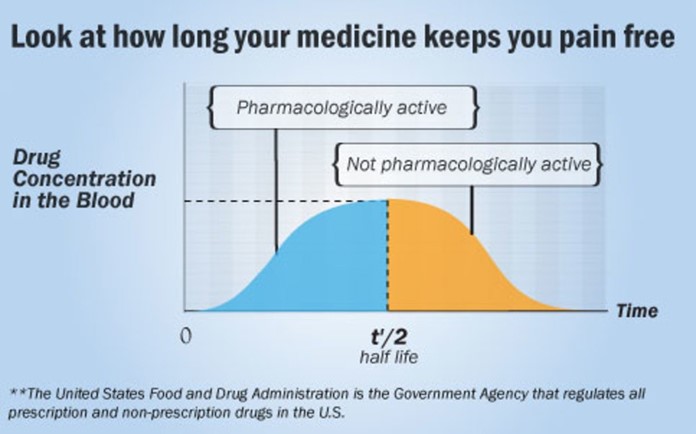What is the term for a life-threatening, exaggerated response by the body's immune system following the administration of a medication?
Anaphylaxis
Desired effect
Teratogenic effect
Paradoxical effect
The Correct Answer is A
Anaphylaxis is a severe and potentially life-threatening allergic reaction that can occur when the body's immune system overreacts to a substance, such as a medication. It is a medical emergency that requires immediate treatment.
Options b, c, and d are not correct because they do not accurately describe the term for a life-threatening response by the body's immune system following the administration of a medication.
Option B refers to the desired effect of a medication, which is not related to anaphylaxis.
Option C refers to a teratogenic effect, which is an effect that can cause harm to a developing fetus.
Option D refers to a paradoxical effect, which is an effect that is opposite to what would be expected.

Nursing Test Bank
Naxlex Comprehensive Predictor Exams
Related Questions
Correct Answer is A
Explanation
The half-life of a medication is the time it takes for the concentration of the medication in the body to decrease by half. In this case, the medication has a half-life of 2 hours and a current toxic level of 40 mEq/dL. After 2 hours, the level will decrease to 20 mEq/dL. After another 2 hours (4 hours total), the level will decrease to 10 mEq/dL, which is within the normal range. However, it will take another 21 half-lives (42 hours) for the level to reach 5 mEq/dL, which is the lower end of the normal range. Therefore, it will take a total of 25 hours (4 + 21) for the medication to reach the normal range.
Option B is incorrect because it would take much longer than 24 hours for the medication to reach the normal range.
Option C is incorrect because it would only take 2 hours for the medication to decrease by half, not reach the normal range.
Option D is incorrect because it would take longer than 4 hours for the medication to reach the normal range.

Correct Answer is A
Explanation
Anaphylaxis is a severe and potentially life-threatening allergic reaction that can occur when the body's immune system overreacts to a substance, such as a medication. It is a medical emergency that requires immediate treatment.
Options b, c, and d are not correct because they do not accurately describe the term for a life-threatening response by the body's immune system following the administration of a medication.
Option B refers to the desired effect of a medication, which is not related to anaphylaxis.
Option C refers to a teratogenic effect, which is an effect that can cause harm to a developing fetus.
Option D refers to a paradoxical effect, which is an effect that is opposite to what would be expected.

Whether you are a student looking to ace your exams or a practicing nurse seeking to enhance your expertise , our nursing education contents will empower you with the confidence and competence to make a difference in the lives of patients and become a respected leader in the healthcare field.
Visit Naxlex, invest in your future and unlock endless possibilities with our unparalleled nursing education contents today
Report Wrong Answer on the Current Question
Do you disagree with the answer? If yes, what is your expected answer? Explain.
Kindly be descriptive with the issue you are facing.
